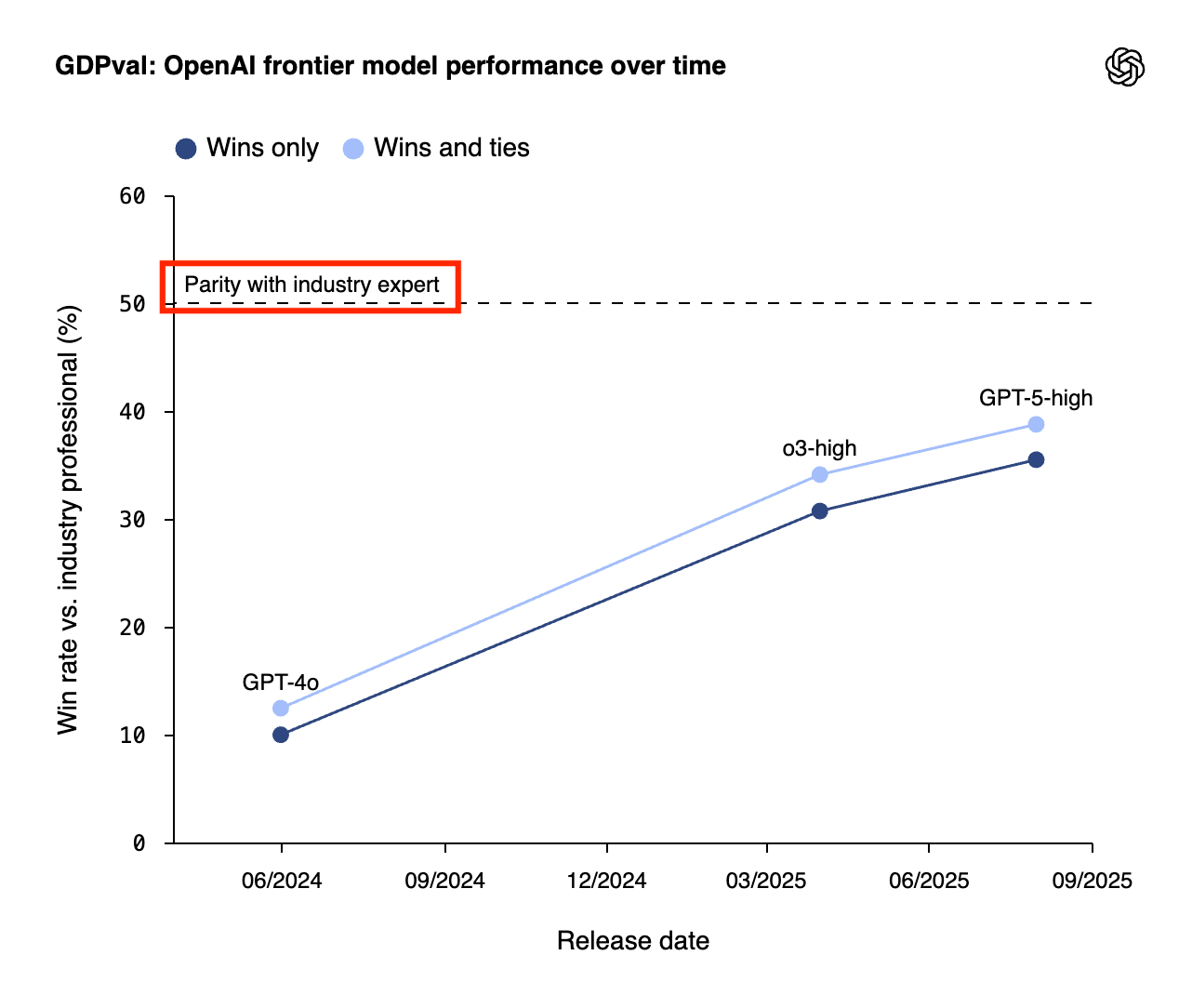- AI with Dino Gane-Palmer
- Posts
- 📊 How AI is changing jobs - in 6 charts
📊 How AI is changing jobs - in 6 charts
From specialized skills to AI-powered ones.

Hi, and happy Tuesday.
1. Demand for software developers is declining
Since the ChatGPT moment in late 2022, software developer job postings have dropped, relative to other roles.

Software developer job postings are down as a share of total openings. (Source: FRED)
2. AI tools are replacing software developers
So how is the need for software development work being served?
Tools that ease software development - “AI agents” or “AI coding assistants” - have exploded in demand.
One such tool is Replit: A coding assistant that meandered for a decade. Replit saw explosive growth after adding Generative AI capabilities to ease use of the tool.

Replit’s revenue exploded after adding AI capabilities to its coding assistant tool. (Source: @jasonlk)
3. Coding is becoming democratized
Who is using these AI coding tools?
As a former software developer myself, I can tell you that few self-respecting software developers are willing to hand-off so much of their craft to tools such as Replit.
The users of these tools are increasingly everybody else.
Companies are increasingly asking their potential hires: Do you know how to work with AI?
Prompting - combined with tools like Replit - lets non-experts achieve what once required specialized training.
In fact, dedicated “prompt engineer” roles have grown 80x in just two years.

The percentage of companies reporting to have prompt engineers. (Source: Pave Data Lab).
4. Coding is just the beginning
OpenAI recently released a study measuring AI performance on real-world work tasks (e.g. legal briefs, engineering blueprints, care plans) from 44 knowledge-work occupations.
Expert graders blindly evaluated the AI’s output against output produced by industry experts.
The study shows that AI models are approaching expert-level performance on these tasks, while also being faster and cheaper than an expert doing the work.

AI models are approaching the quality of work produced by industry experts. (Source: Open AI)
5. Every other specialized profession is next
AI models form the foundational layer for tools such as Replit and ChatGPT.
While coding has been one of the most visible frontiers for AI adoption, as specialized tools - akin to Replit for coding - emerge across other functions, AI-tools will democratize every profession.

Work tasks the Claude chatbot is used for. (Source: Anthropic)
6. Employers are increasingly seeking uniquely human skills in jobs
Jobs, though, are more than just a bundle of tasks that are AI-automatable through prompting.
According to the World Economic Forum, the top skills of 2030 won’t be coding or calculus - they’ll be creative thinking, adaptability, and tech literacy.

By 2030, demand for uniquely human and tech-adapted skills will rise most, while those AI can assist with will become “out of focus”. (Source: WEF)
What this means for you.
Typing was once a specialized skill that required formal training. Many companies employed large teams of "typists" to handle the creation of all documents for the organization.
Today, everyone types.
AI is now doing the same for every specialized skill.
Soon, anyone will be able to “be” a software developer, accountant, or lawyer - with the right AI tools.
Check out our debate (18 min video), where Sangeet Paul Choudary discusses the jobs emerging around scarcity, risk & coordination.
Or my take (12 min video) on the 6 skills that matter most in a post-AI world.
Until next week,

Dino